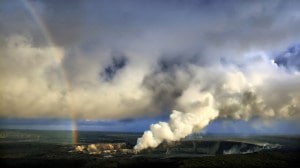Gateway to Tibet at ease, and crawling with troops
Under harsh mountain sunlight, camouflaged soldiers with helmets, assault rifles and tear gas launchers patrol the main street in rows of three.

Under harsh mountain sunlight, camouflaged soldiers with helmets, assault rifles and tear gas launchers patrol the main street in rows of three.
A bookshop owner watched them march past in lock step. “I’m glad the troops are here,” said the woman, a member of China’s majority Han ethnic group. “It’s secure.”
Here in Kangding, a town in the western part of Sichuan province where ethnic Tibetan mountain-dwllers mingle with Han Chinese, the meaning of the show of force is plain: trouble will not be tolerated.
On Friday, Buddhist monk-led protests against Chinese rule culminated in rioting in Lhasa, the cultural and religious centre of the Tibetan world where many Tibetans feel they are treated like second-classs citizens.
The city was locked down, but the ethnic tensions have boiled over elsewhere in China and reports have emerged of protests and violence in monastery towns in nearby Gansu, Qinghai and Sichuan.
Couched 2,500 metres above sea level, Kangding is the start of the Tibetan world as entered from the east. It is the biggest settlement in Ganzi Prefecture, a region that Tibetans historically called ‘Kham’ and consider a distinctive part of wider Tibet.
From here, a two-lane mountain road connects Sichuan to Tibet. Lately, it has been filled with convoys of soldiers heading west to keep order.
Ganzi has seen a share of local Tibetan unrest in the past, and two locals, including a Buddhist monk, were convicted in 2002 of setting off bombs against Chinese targets. One was executed, but their defenders and Chinese rights campaigners have said the charges were gravely flawed and apparently trumped up.
But in Kangding, called Dardo in Tibetan, ethnic Tibetans and Hans alike say with considerable conviction there will be no problems.
The reasons are manifold. The army presence is considerable, and in a region where Tibetan-dominated highlands overlap Han-dominated plains, the population is about evenly split. And the economy has prospered on the back of a tourism boom in recent years and both groups have benefited, they say.
The local government is also betting that an airport being built nearby will help attract more visitors.
Protests elsewhere have been led by monks for the most part, and there is no major monastery in Kangding.
“Han-Tibetan relations are actually not bad here,” said a Han barber who moved from Chengdu to Kangding more than 10 years ago when, he said, things were more tense. “There is a better understanding of one another now.”
Monks at a small monastery nearby echoed the sentiment, although avoided lengthy conversations with a foreigner by dashing off to study or meet friends.
“It’s a good place here,” said one.
A Tibetan cab driver shook his head when the topic of the unrest came up. “It makes me very uncomfortable,” he said. “We have enough to eat, we live well. Our material needs are met. What good would independence do?”
RIPPLE EFFECT
The local government isn’t taking any chances.
On Sunday, local leaders held an emergency meeting to mobilise against what the government has said were separatists led by the Dalai Lama, Tibet’s exiled spiritual leader.
Provincial and prefecture party officials made a show of welcoming paramilitary troops who were dispatched to the Ganze Tibetan Autonomous Prefecture, where Kangding is located, to do exercises.
“The soldiers who are the sons and brothers of the people are the mountain against which the people lean,” the Ganzi Daily said.
“It was they who, under the guidance of the Party, liberated the Tibetan people from the deep waters and hot fires of the feudal peasant-slave system to become masters of the nation.”
In Kangding starting on Monday night, police cars patrolled streets announcing on loudspeakers that all parked cars must be moved.
In the wake of the Lhasa riots, the Chinese government closed the Tibet Autonomous Region to foreigners. Tour agencies in Sichuan have also been told not to allow foreigners to travel to ethnic Tibetan areas outside Tibet.
Some here worry that if strict control is imposed through the Beijing Olympics in August, it would cut into the peak tourist season, which runs from May through October.
“I dont think there will be an impact because there isn’t any trouble in Kangding, but if they limit people there could be,” said Zeren Zhima, a half-Tibetan, half-Chinese woman working at a local hotel.





- 01
- 02
- 03
- 04
- 05


























